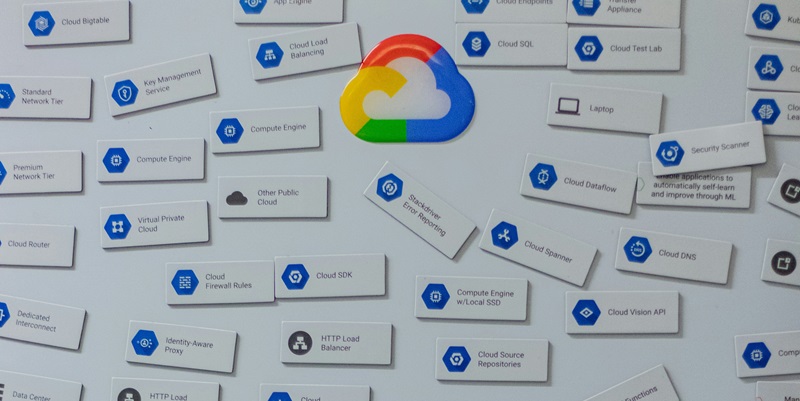Google Cloud has recently unveiled AI Agent Space, a transformative ecosystem designed to facilitate the discovery, deployment, and co-creation of AI agents with the aim of automating routine tasks, enhancing customer experiences, and optimizing business operations. This strategic initiative positions Google within the intensely competitive landscape of major cloud computing platforms, aiming to empower partners and businesses to harness cutting-edge AI technologies. As the adoption of AI accelerates across enterprises, Google’s move is set to potentially redefine how businesses interact with artificial intelligence.
Google Cloud’s AI Agent Space: A New Ecosystem
Google Cloud’s AI Agent Space introduces an innovative ecosystem that enables the creation and deployment of highly customizable AI agents. This comprehensive platform provides businesses with a suite of tools, resources, early access to AI technologies, direct engineering support, and best practices aimed at facilitating seamless development. One of Google’s strategic advantages is the promotion of these new AI agents through its Google Cloud Marketplace, targeting a broader audience reach and achieving significant scale. This approach is designed to empower both businesses and partners by fostering the co-creation of AI agents tailored specifically to various industries.
The initiative seeks to cultivate innovation by offering a robust toolkit and a flexible, partner-driven model. Google’s strategy contrasts with that of its competitors by focusing on a diverse range of AI solutions that cater to a multitude of business needs. Through AI Agent Space, Google aims to support enterprises in developing AI agents that are not only functional but also industry-specific, ensuring that the solutions are directly applicable to real-world scenarios and requirements. This flexibility, combined with strong support and resources, is what sets Google Cloud’s offering apart.
Empowerment and Innovation: Google’s Strategic Positioning
The introduction of AI Agent Space by Google Cloud represents a pivotal strategic move aimed at empowering businesses and partners through the co-creation of tailored AI agents. By enabling businesses to develop solutions that meet their specific industry demands, Google fosters an environment of innovation and collaboration. This initiative aligns with Google’s broader objective of providing cutting-edge technologies and support infrastructure that not only address current needs but also anticipate future challenges in the AI-driven cloud service market.
Google’s partner-centric model encourages innovation by promoting collaboration between Google and its business partners. The Google Cloud Marketplace acts as a critical platform for promoting AI agents, ensuring they achieve scalability and reach a wide audience. This marketplace model ensures that a variety of pre-built and custom AI agents are available, offering businesses numerous choices tailored to their needs. Through this strategic positioning, Google emphasizes its commitment to driving innovation and empowering its partners, setting a precedent in the rapidly evolving landscape of AI services.
Showcasing Current AI Solutions: Real-World Applications
Google has highlighted a range of AI agents developed in collaboration with its customers and partners, effectively demonstrating the potential applications of AI Agent Space. These examples include Accenture’s virtual assistants for customer support, Bain’s wealth management AI agent, and BCG’s sales optimization tool. These cases showcase the versatility and efficiency of Google’s AI solutions, illustrating the tangible benefits of AI-driven processes across diverse industries. Furthermore, they provide insight into the future capabilities of AI Agent Space by showing how it can be leveraged to address specific business challenges.
Although many of these AI agents are not currently available on AI Agent Space, they offer a glimpse into the future of AI-driven business operations. By showcasing real-world applications, Google underscores the significant impact its AI agents can have on various industries, from improving customer support to optimizing sales processes. These practical examples serve to highlight the potential of AI Agent Space to drive business innovation and efficiency, reinforcing Google’s strategic focus on developing industry-specific solutions that are both practical and forward-thinking.
Competing Solutions from Rivals: A Diverse Landscape
The competitive landscape of AI-driven cloud services is characterized by the presence of major players such as Microsoft, SAP, and Salesforce, each of which has developed unique AI solutions catering to different business strategies and needs. Microsoft’s Copilot Studio, for instance, has become widely adopted, with over 100,000 organizations utilizing it to create or edit AI agents. The platform’s integration with numerous large language models (LLMs) and features like autonomous agents and collaboration tools make it particularly suitable for large enterprises with complex IT environments. This large-scale, infrastructure-focused strategy significantly differentiates Microsoft from its competitors.
SAP’s Joule AI assistant takes a different approach by focusing on enterprise integration and unified workflows across various business functions. This AI solution helps address critical issues such as payment disputes and supply chain disruptions through deep system integration, emphasizing process unification and seamless operation. This approach caters to businesses with intricate operational needs, highlighting SAP’s commitment to providing comprehensive, integrated AI solutions. Salesforce’s Agentforce, on the other hand, integrates AI agents within its ecosystem by leveraging its Data Cloud to enhance service, sales, and marketing functions. The platform emphasizes low-code accessibility, simplifying the development and deployment of AI solutions, which aligns with Salesforce’s strategy of providing user-friendly, data-driven technologies.
Overarching Trends and Consensus Viewpoints
Google Cloud has recently introduced AI Agent Space, a groundbreaking ecosystem intended to simplify the discovery, deployment, and co-creation of AI agents. The purpose of this innovation is to automate repetitive tasks, improve customer experiences, and streamline business operations. With this strategic move, Google aims to solidify its standing in the highly competitive field of major cloud computing platforms. By equipping partners and businesses with advanced AI technologies, Google enables them to stay ahead in the rapidly evolving tech landscape.
The launch of AI Agent Space represents a significant step in the broader movement towards AI adoption among enterprises. As more businesses integrate AI into their operations, Google’s initiative is poised to redefine the ways in which artificial intelligence is utilized within the corporate sector. This development underscores Google’s commitment to providing scalable, efficient AI solutions that cater to modern business needs, ensuring that both small and large enterprises can leverage AI to foster innovation and drive growth.

